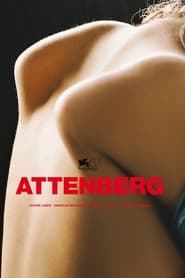Celine and Julie Go Kissing?
It would be too reductive to insist on attributing Marina’s self-willed seclusion to a matter of alienated living in a not-quite-post-industrial environment. [Attenberg] is ultimately a film that asks how one can be expected to cope with life in what might be termed post-post-modernity. The film’s varied segments serve as the answers: an anarchic sense of play; the movies, including this one, that provide us with this manic brand of release; music; sex, of course; and, possibly even, if we’re lucky, love.
— Andrew Schenker (Slant Magazine)
With its persistent inventiveness and a lack of unearned sentimentality, the movie provides an antidote to a lot of lazily produced dramas about death, American or otherwise.
— Eric Kohn (IndieWire)
Though it makes no reference to the current economic and political crisis in Greece, Attenberg is suffused with a sense of malaise — of stasis, if you prefer a Greek word — that way well reflect the contemporary national mood. It depicts a reality in which religious and secular structures of meaning have collapsed, in which motivation is in short supply, but in which life must nonetheless go on.
— A. O. Scott (New York Times)
Synopsis: Marina, 23, is growing up with her architect father in a prototype factory town by the sea. Finding the human species strange and repellent, she keeps her distance...that is until a stranger comes to town and challenges her to a foosball duel, on her own table. Her father, meanwhile, ritualistically prepares for his exit from the 20th century, which he considers to be "overrated."

